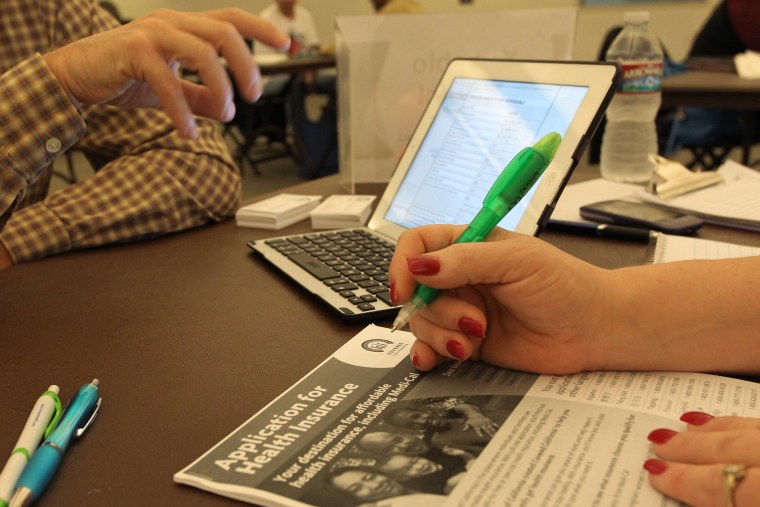There are increasing reports that HealthCare.Gov is working better -- perhaps much better -- for consumers than it was a few short weeks ago. "Consumer advocates say it is becoming easier for people to sign up for coverage," report Sandhya Somashekhar and Amy Goldstein in the Washington Post. "The truth is, the system is getting stronger as it recovers from its disastrous launch," writes Sam Baker in the National Journal. Applying "was no problem at all, with no delays," says Paul Krugman. Reports from inside the health care bureaucracy are also turning towards optimism. People who knew the Web site was going to be a mess on Oct. 1st are, for the first time, beginning to think HealthCare.Gov might work. Data backs them up: By mid-November, the pace of enrollment in the federal exchanges had doubled from what it was in October. The Obama administration is certainly acting like they believe the site has turned the corner. Somashekhar and Goldstein report that they're "moving on to the outreach phase, which had taken a back seat as they grappled with the faulty Web site. Next week, the White House will host an insurance-oriented 'youth summit' aimed at people ages 18 to 35, an age group whose participation in the health-care law will be critical to its success."
Turning the health care corner
For those stuck in the "Obamacare is and will remain a disaster" story, it's time for a reality check.

Political journalism is sometimes criticized, fairly, for its "pack" mentality. Major news organizations wait for the conventional wisdom to organically take shape, and then the players stick to their scripts, reinforcing an agreed upon consensus. In practically no time at all, there are certain political facts that "everyone knows" to be true.
But soon after, that gets dull, the conventional wisdom invites skeptics, and contrarian instincts kick in. Maybe, the political world starts to wonder, those truths that "everyone knows" aren't so true after all.
For the last several weeks, the consensus in establishment circles was that the Affordable Care Act's open-enrollment period was not only a disaster, but a catastrophe that would destroy Obama's presidency, the Democratic Party, the American health care system, and the very idea of progressive governance. Pundits could hardly contain their analogies -- this was Obama's Katrina, Obama's Iraq, Obama's Watergate, Obama's Iran-Contra, and even Obama's Bay of Pigs.
But the funny thing about narratives is that they're sometimes fleeting. Ezra Klein suggests today that "Obamacare" may finally be "turning the corner."
Why didn't the White House do this sooner? Because officials didn't much see the point in directing people to a website that didn't work. If they're increasing the website, it's the result of greater optimism.
Perusing the news this morning, there are more than a few compelling pieces along these lines. The L.A. Times has a terrific article, for example, on "the Obamacare success stories you haven't been hearing about." NPR today highlighted some Californians who received cancelation notices -- and are thrilled with the results. National Journal made the case yesterday that Obama not only can recover from the troubled rollout; he already has.
Moreover, Greg Sargent has a great piece noting that for all the talk about health care crushing Democrats, there's a credible argument that the Republican position "is actually a political liability of its own."
Yes, some of these pieces were written by center-left observers who may be predisposed to hope "Obamacare" succeeds, but note that we weren't seeing any of these kinds of reports a few weeks ago when the feeding frenzy got underway. On the contrary, Ezra, Greg, and others were openly critical of the administration's obvious mistakes and missteps as they unfolded.
The conventional wisdom won't change quickly or easily, but you can almost see the consensus shifting in real time. There are some important issues the administration still needs to address, and failure very much remains an option. For that matter, if it's a mistake to exaggerate the importance of every piece of bad ACA news, the law's defenders must be equally cautious about exaggerating the importance of every positive development, too.
But for those stuck in the "Obamacare is and will remain a disaster" story, it's time for a reality check. The system is improving, enrollment is increasing, more consumers are smiling, horror stories are failing, and health costs are shrinking.
The health care talking points that "everyone knows" to be true are due for an update.